Pantodac L Capsule 10's
MRP ₹379.5
(Inclusive of all Taxes)
₹56.9 Cashback (15%)
Provide Delivery Location
Online payment accepted
 Prescription drug
Prescription drugWhats That
Composition :
Manufacturer/Marketer :
Consume Type :
Expires on or after :
Return Policy :
About Pantodac L Capsule
Pantodac L Capsule belongs to a group of medicines called gastrointestinal agents used to treat gastro-oesophageal reflux disease (GERD), acidity, indigestion, heartburn, and peptic ulcers. Gastroesophageal reflux disease occurs when stomach acid frequently flows back into the food pipe (oesophagus); this causes acidity and heartburn. Peptic ulcers are sores that develop on the inner lining of the intestine and stomach.
Pantodac L Capsule is a combination of two drugs, namely: Pantoprazole (proton pump inhibitor) and Levosulpiride (prokinetic agent). Pantoprazole works by blocking the action of an enzyme called gastric proton pump, which is responsible for the production of acid. Levosulpiride works by increasing the pressure of the inferior oesophageal (food pipe) sphincter, thereby prevents backflow of food and acid into the mouth. Together, Pantodac L Capsule helps in preventing acid reflux, thereby provides relief from acidity and heartburn.
Take Pantodac L Capsule 1hour prior food. Swallow Pantodac L Capsule as a whole with a glass of water; do not chew, or break it. You are advised to take Pantodac L Capsule for as long as your doctor has prescribed it for you depending on your medical condition. In some cases, you may experience certain common side-effects such as headache, nausea, vomiting, gas, dry mouth, dizziness and diarrhoea. Most of these side-effects do not require medical attention and will resolve gradually over time. However, you are advised to talk to your doctor if you experience these side-effects persistently.
Inform your doctor before taking Pantodac L Capsule if you have a history of gastrointestinal bleeding or intestinal obstruction. On long-term treatment, Pantodac L Capsule may cause osteoporosis and hypomagnesemia (low magnesium levels). Consult your doctor if you are pregnant or breastfeeding. Pantodac L Capsule may cause drowsiness and dizziness, so drive only if you are alert. Pantodac L Capsule should not be given to children as safety has not been established. Avoid consuming alcohol along with Pantodac L Capsule as it could lead to increased drowsiness and can elevate the production of stomach acid.
Uses of Pantodac L Capsule
Directions for Use
Key Benefits
Pantodac L Capsule belongs to a group of medicines called gastrointestinal agents used to treat gastro-oesophageal reflux disease, acidity, indigestion heartburn, and peptic ulcers. Pantodac L Capsule is a combination of two drugs, namely: Pantoprazole (proton pump inhibitor) and Levosulpiride (prokinetic agent). Pantoprazole works by blocking the action of an enzyme called gastric proton pump, which is responsible for the production of acid. Levosulpiride works by increasing the pressure of the inferior oesophageal (food pipe) sphincter, thereby preventing the backflow of food and acid into the mouth. Together, Pantodac L Capsule helps in preventing acid reflux, thereby provides relief from acidity and heartburn.
Storage
Drug Warnings
Do not take Pantodac L Capsule if you are allergic to any of its contents. Inform your doctor if you have a history of pheochromocytoma (tumour of the adrenal gland), epilepsy, mania, gastrointestinal bleeding, intestinal obstruction, or severe kidney and liver impairment. Pantodac L Capsule may cause osteoporosis (weak and brittle bones) and hypomagnesemia (low magnesium levels) on long-term treatment. Consult your doctor if you are pregnant or breastfeeding. Pantodac L Capsule may cause dizziness and drowsiness, so drive only if you are alert. Pantodac L Capsule should not be given to children as safety and effectiveness have not been established. Avoid consuming alcohol along with Pantodac L Capsule as it could lead to increased drowsiness and can elevate the production of stomach acid.
Diet & Lifestyle Advise
- Avoid smoking and alcohol consumption. Alcohol intake leads to increased production of stomach acid, thereby increasing acidity and heartburn.
- Eat smaller meals more often.
- Maintain a healthy weight by regular exercising.
- Avoid lying down after eating.
- Avoid tight-fitting clothes.
- Maintain a healthy weight by regular exercising.
- Practise relaxation techniques and avoid stress by doing yoga or meditation.
- Avoid foods such as high-fat food, spicy food, chocolates, citrus fruits, pineapple, tomato, onion, garlic, tea and soda.
- Avoid sitting continuously as it may trigger acidity. Take a break of 5 minutes every hour by doing brisk walking or stretching.
Side Effects of Pantodac L Capsule
- Headache
- Nausea
- Vomiting
- Gas
- Dry mouth
- Dizziness
- Diarrhoea
Habit Forming
Therapeutic Class
All Substitutes & Brand Comparisons
RX
Panido-L Capsule 15's
Shine Pharmaceuticals Ltd
₹161.5
(₹9.69 per unit)
71% CHEAPERRX
Panum L Capsule 10's
J B Chemicals & Pharmaceuticals Ltd
₹115.5
(₹10.4 per unit)
69% CHEAPERRX
Volapride-Plus Capsule 10's
Mankind Pharma Pvt Ltd
₹140.5
(₹12.65 per unit)
62% CHEAPER
Author Details
We provide you with authentic, trustworthy and relevant information
FAQs
Drug-Drug Interactions Checker List
- KETOCONAZOLE
- ITRACONAZOLE
- POSACONAZOLE
- WARFARIN
- ATAZANAVIR
- METHOTREXATE
- FLUVOXAMINE
- RIFAMPICIN
Disease/Condition Glossary
Acidity: The stomach is usually protected from acid by a mucous layer. In some cases, due to excess acid production, the mucous layer gets eroded, which leads to complications like GERD, acidity, heartburn, and peptic ulcers.
Gastroesophageal reflux disease (GERD): It occurs when stomach acid frequently flows back into the food pipe (oesophagus). This backflow (acid reflux) irritates the food pipe and causes heartburn and acidity. Symptoms include heartburn, sour or bitter taste in the mouth, and difficulty swallowing.
Peptic ulcers: Peptic ulcers are sores that develop on the lining of the stomach and intestine due to erosion of the stomach's protective lining. Symptoms include nausea, changes in appetite, bloody or dark stools, unexplained weight loss, vomiting, and indigestion.
Indigestion: Indigestion is the feeling of fullness. It occurs due to slow gastric emptying. Symptoms include stomach pain, bloating, heartburn, nausea and vomiting.

Have a query?
Alcohol
Safe if prescribed
Avoid consumption of alcohol while taking Pantodac L Capsule . Alcohol intake leads to increased production of stomach acid, thereby increases acidity and heartburn.
Pregnancy
Consult your doctor
Consult your doctor before taking Pantodac L Capsule if you are pregnant; your doctor will prescribe only if the benefits outweigh the risks.
Breast Feeding
Consult your doctor
Pantodac L Capsule may pass into breast milk. Consult your doctor before taking Pantodac L Capsule ; your doctor will decide whether Pantodac L Capsule can be taken by breastfeeding mothers or not.
Driving
Safe if prescribed
Pantodac L Capsule causes dizziness and drowsiness. Do not drive or operate machinery unless you are alert.
Liver
Consult your doctor
Dose adjustment may be needed. Consult your doctor before taking Pantodac L Capsule if you have a liver impairment or any concerns regarding this.
Kidney
Consult your doctor
Dose adjustment may be needed. Consult your doctor before taking Pantodac L Capsule if you have kidney impairment or any concerns regarding this.
Children
Safe if prescribed
Pantodac L Capsule should not be given to children as the safety and effectiveness were not established.

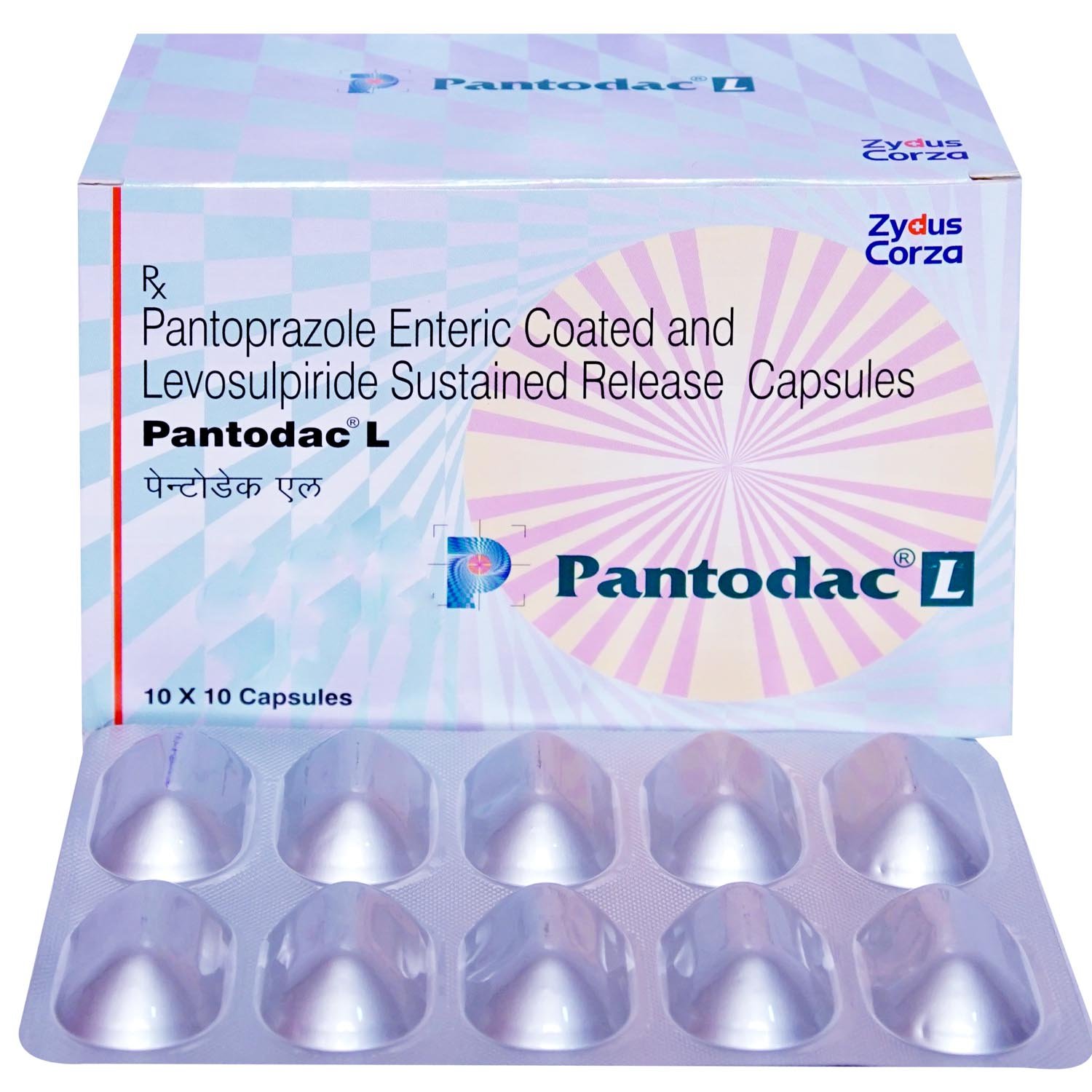
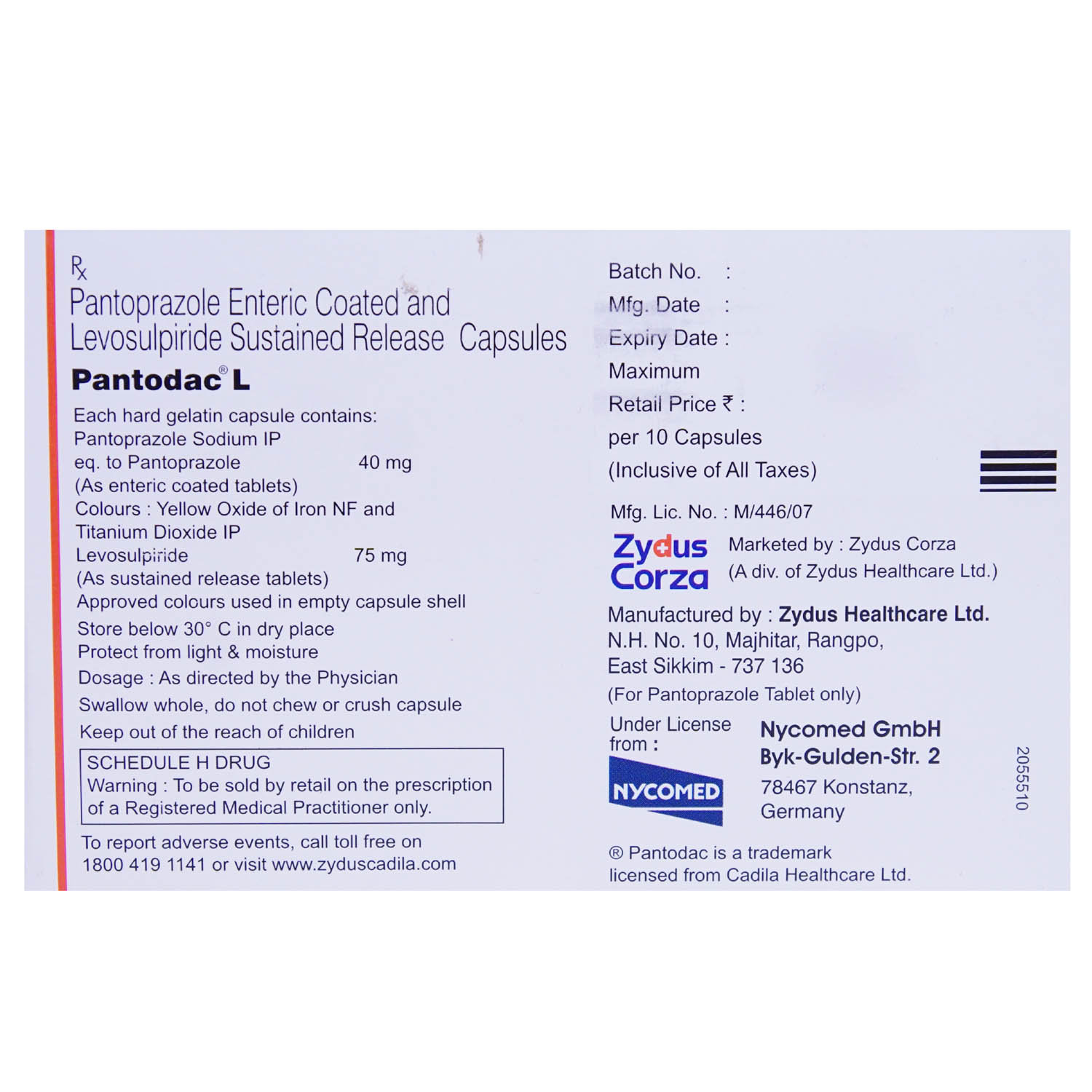
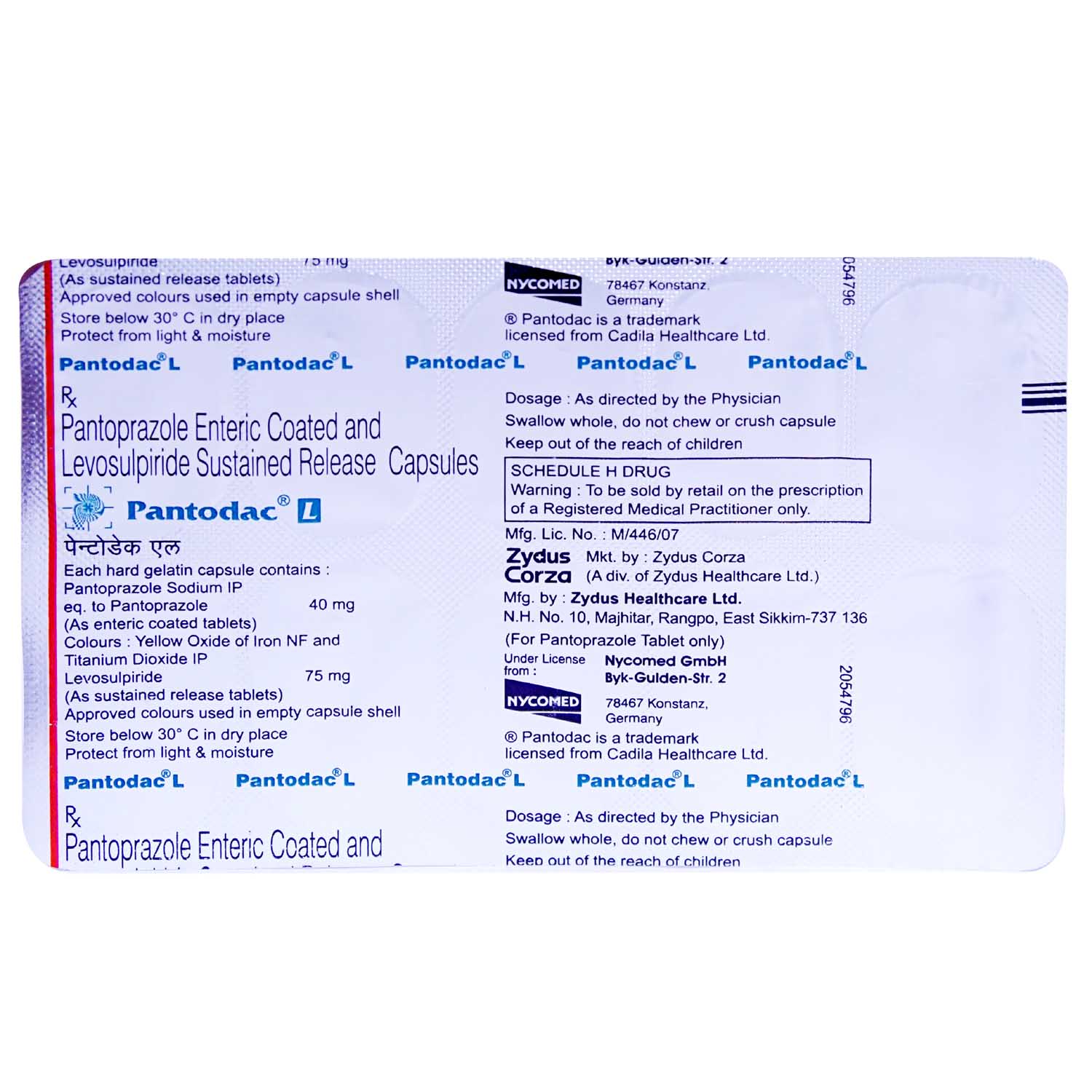




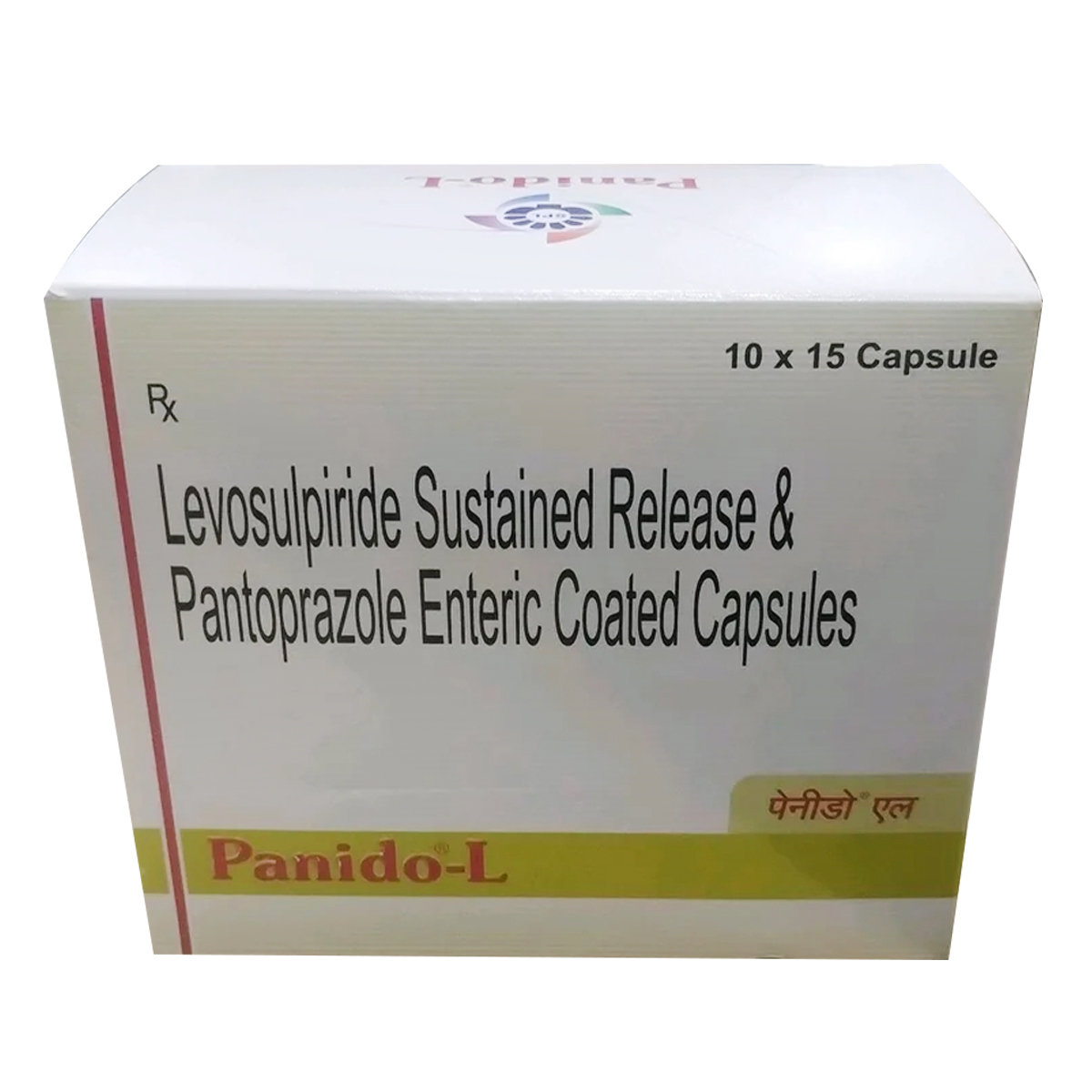
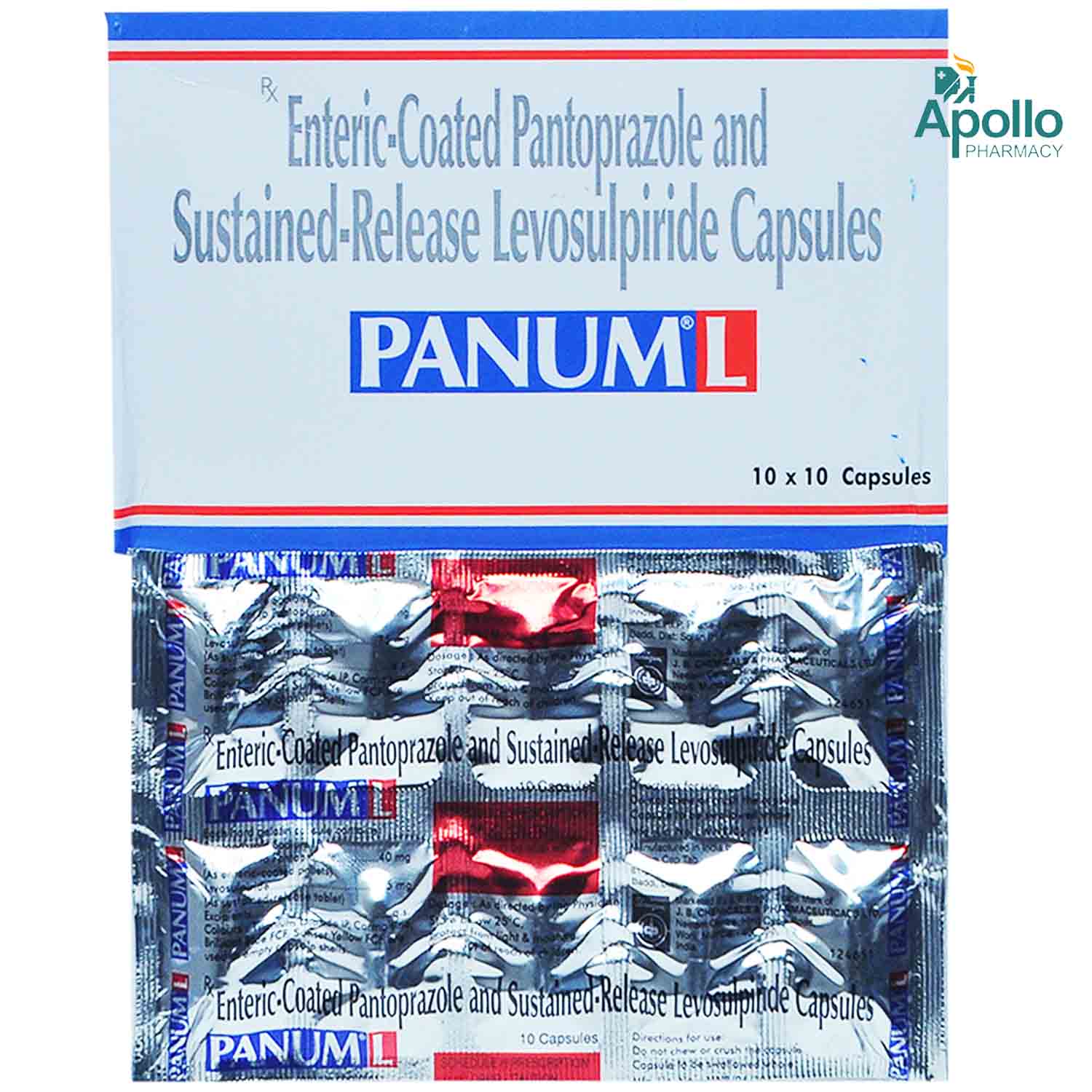

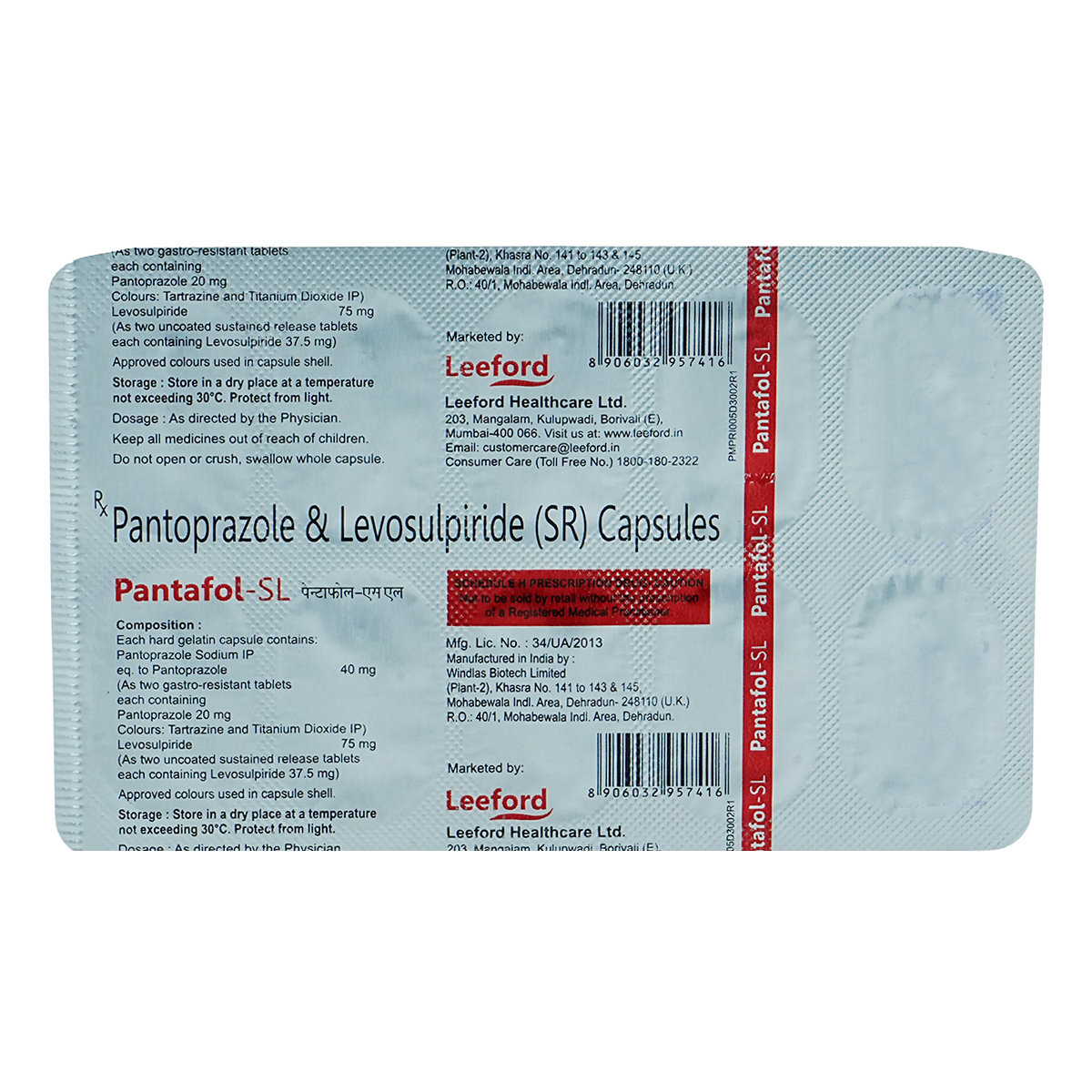
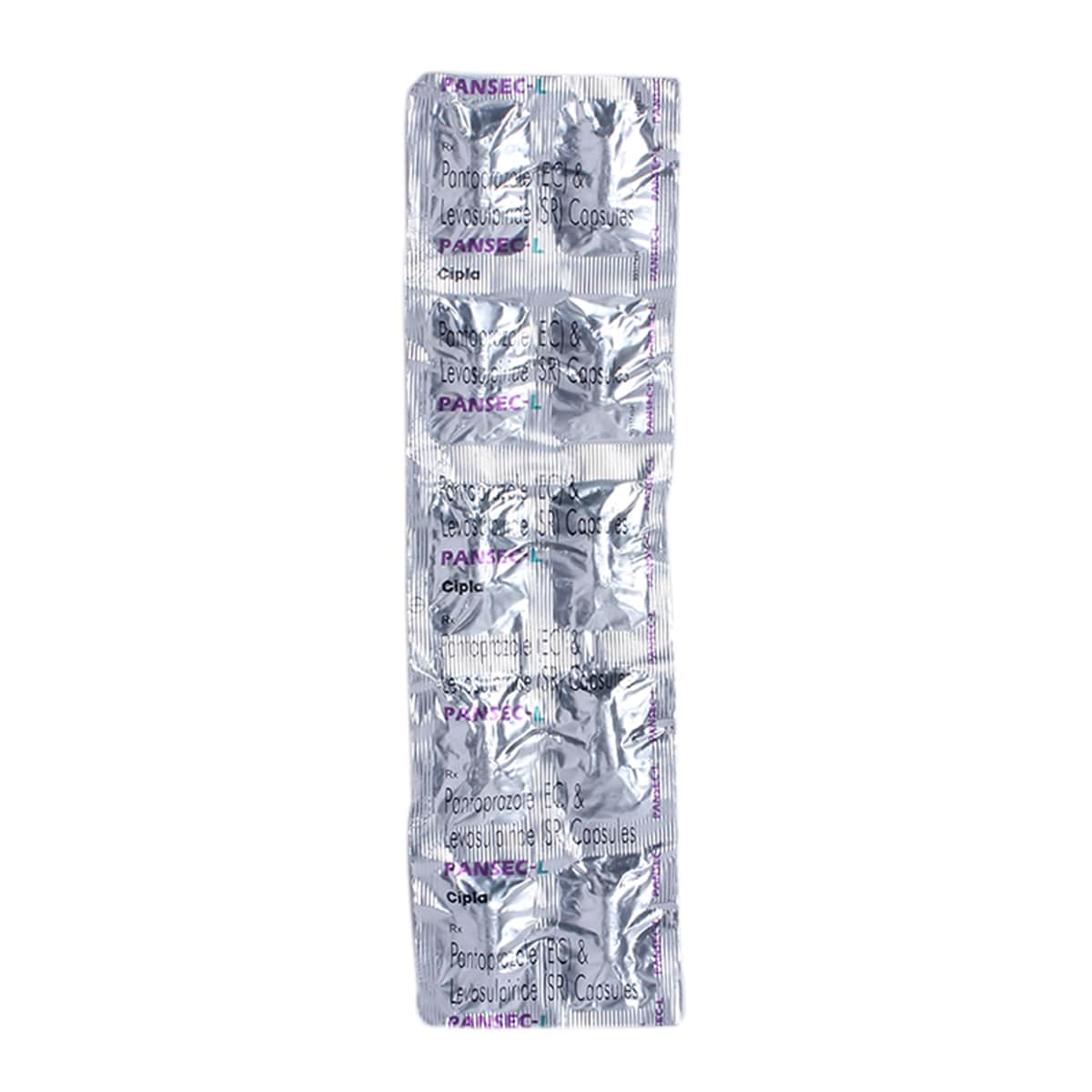


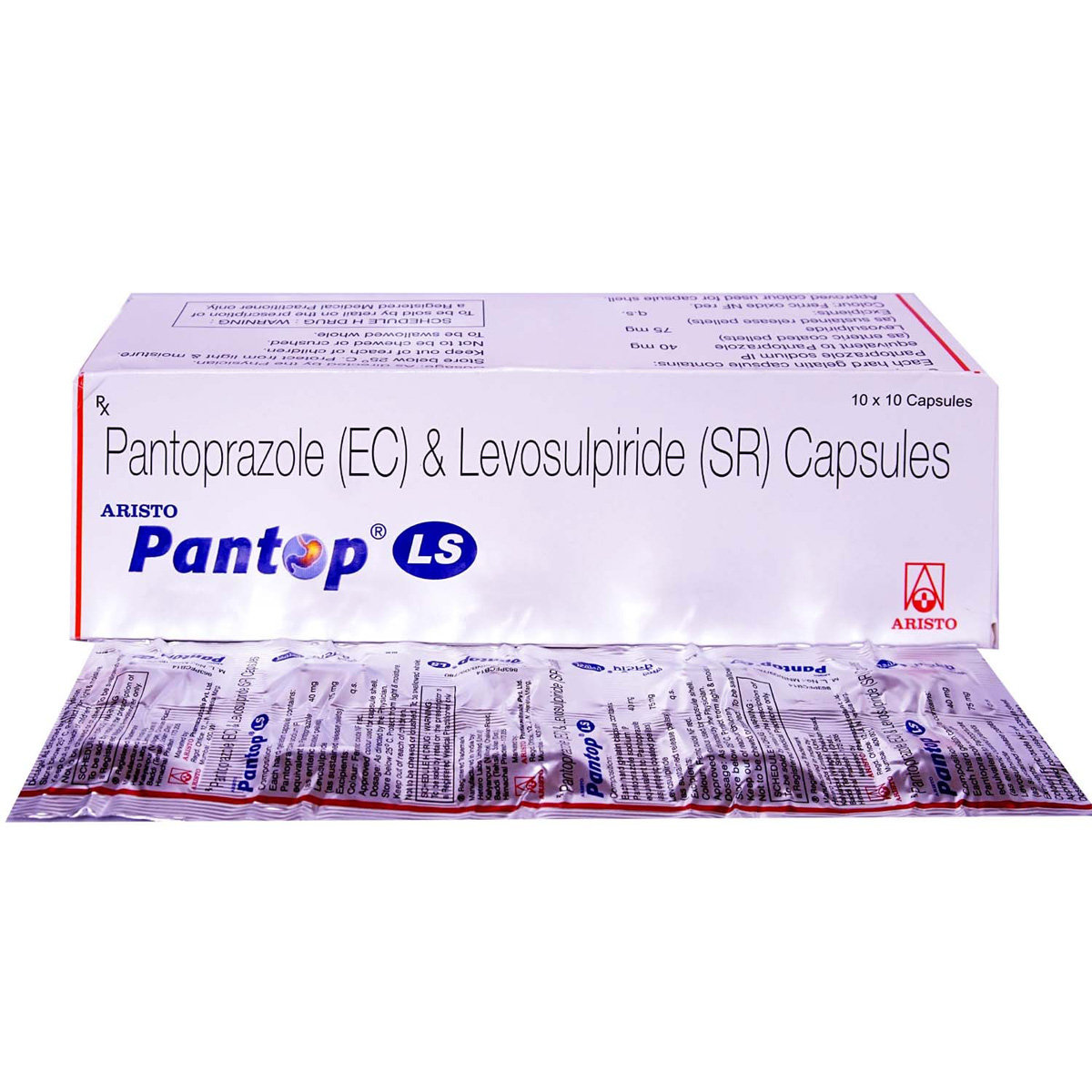
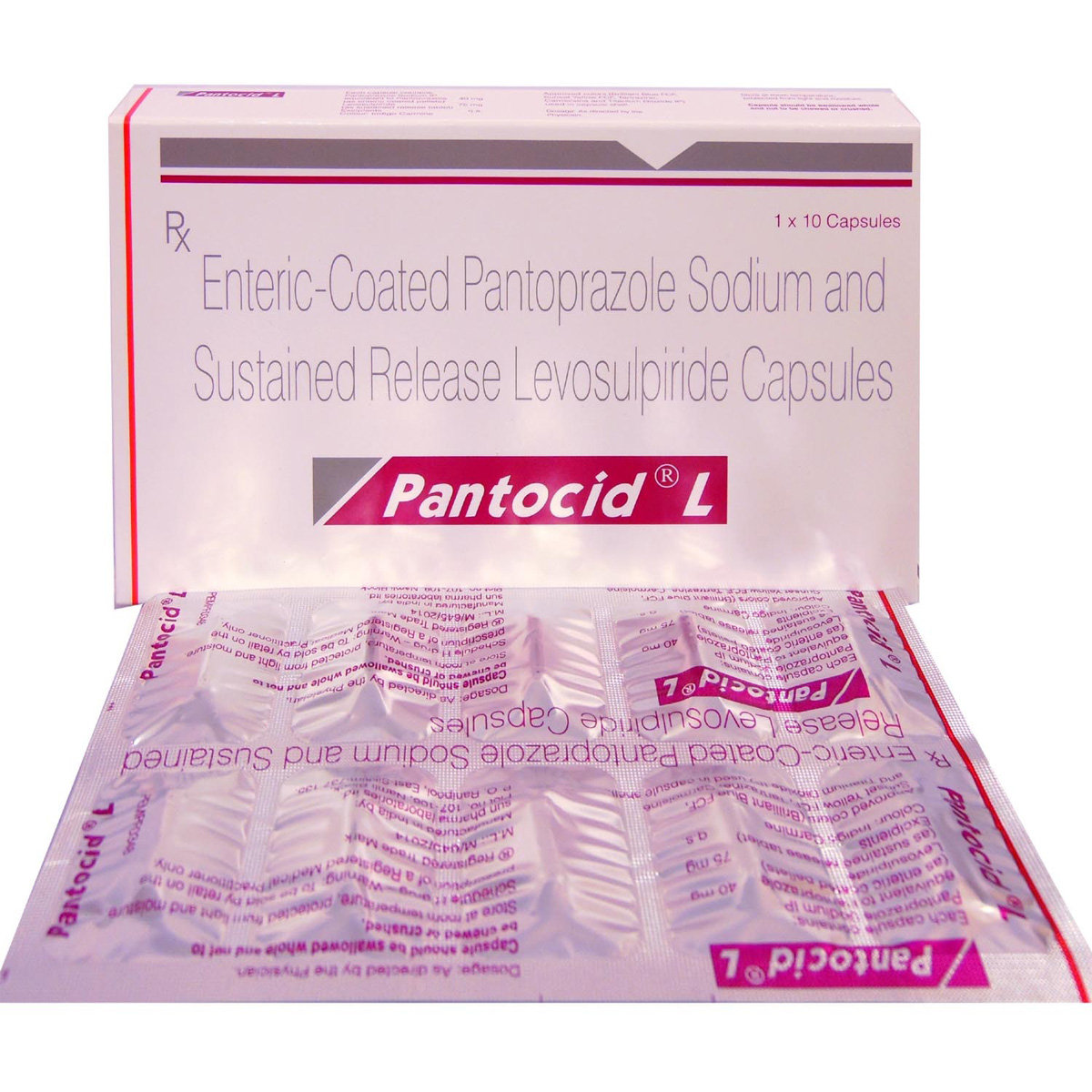
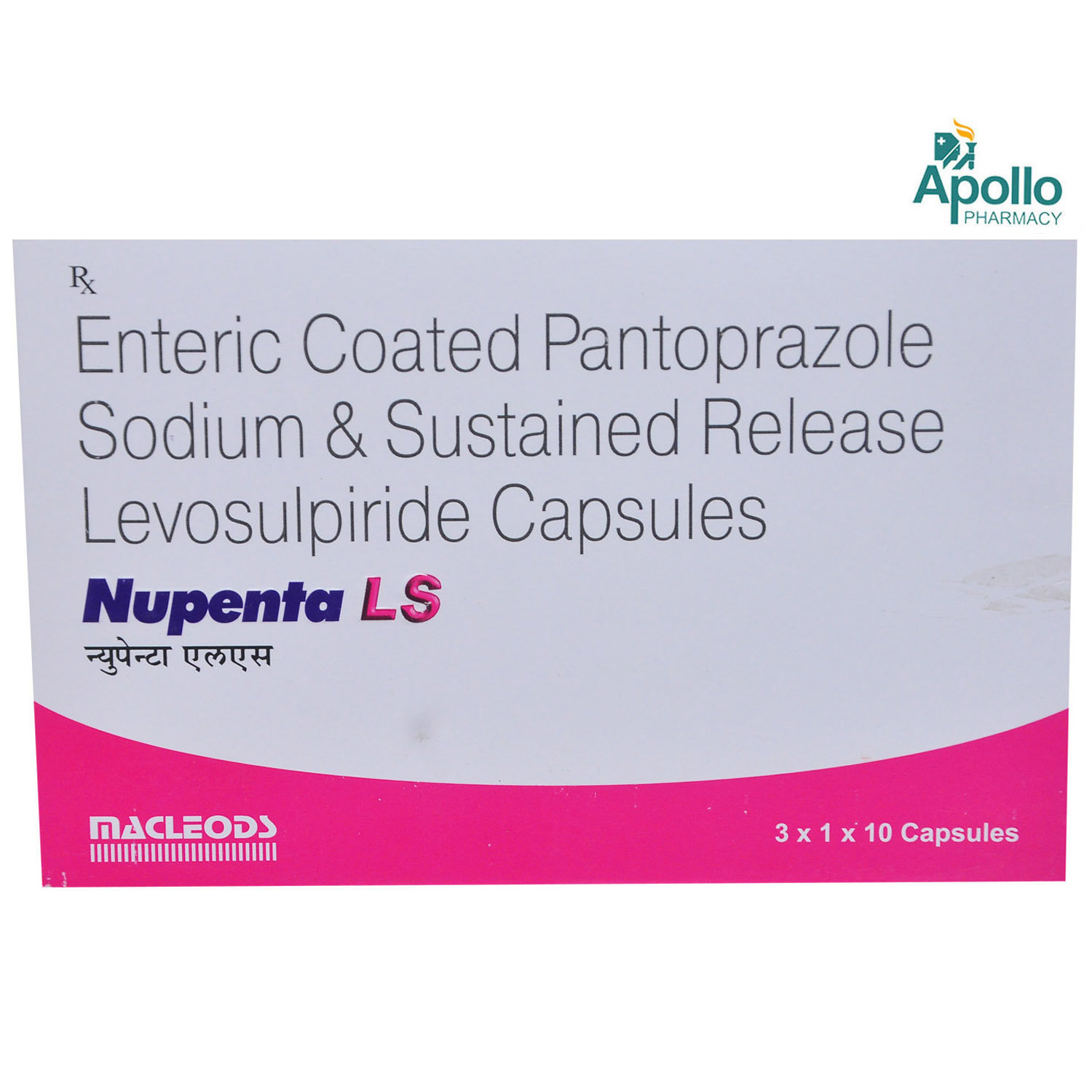

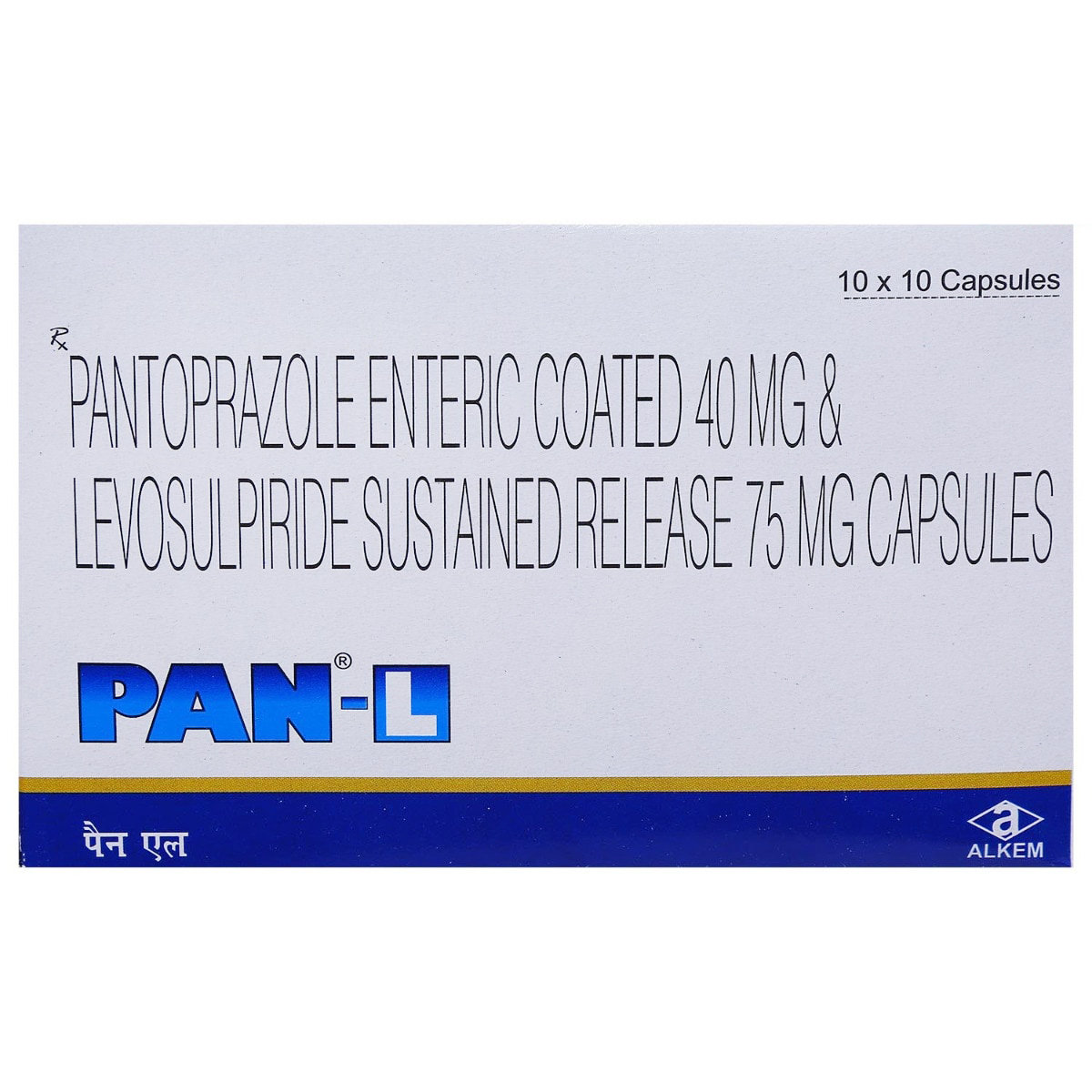

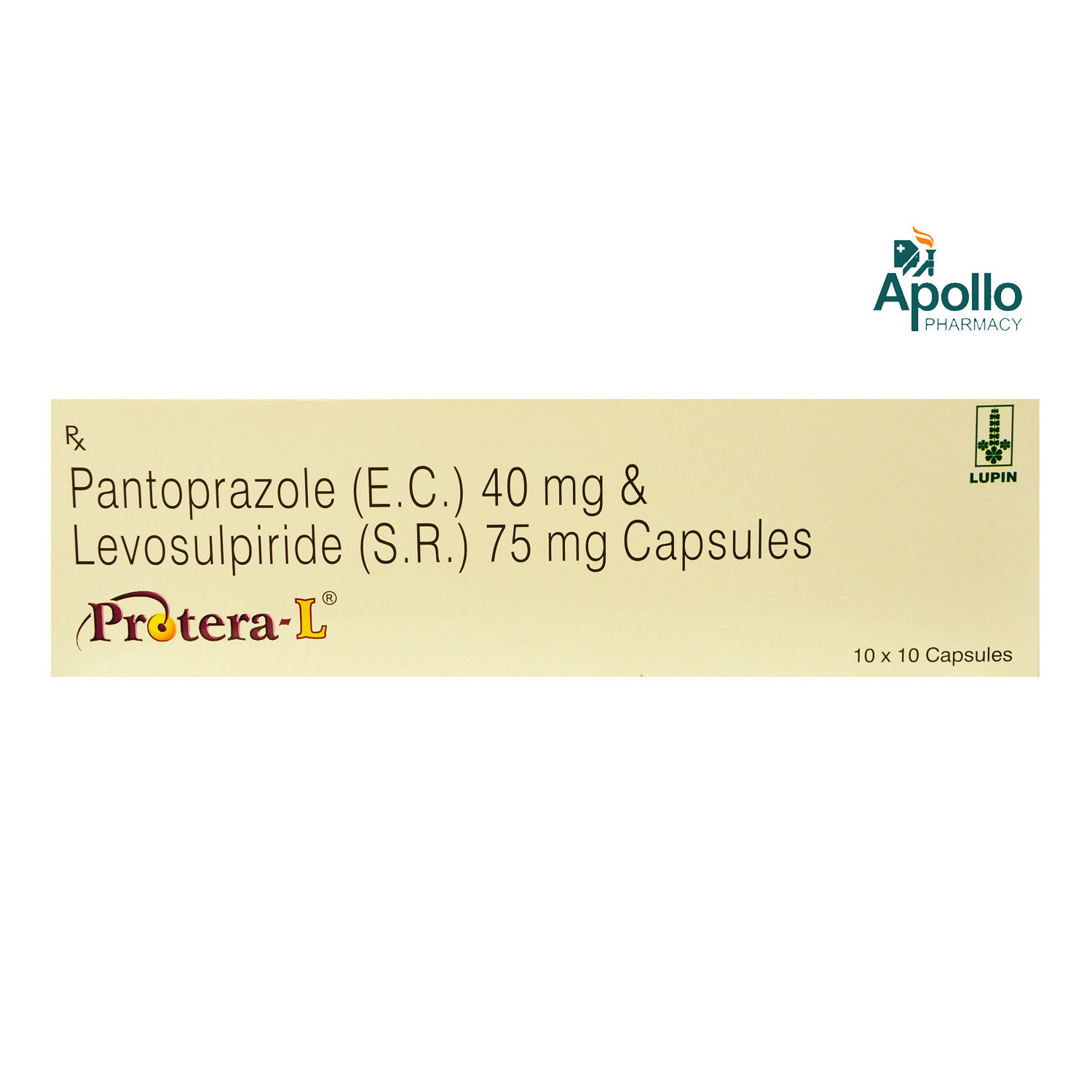

_0.jpg?tr=q-85)

